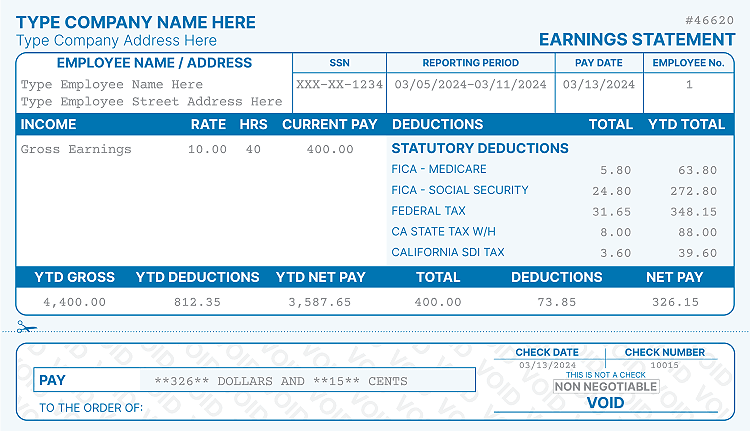Employee Appraisals: Tips to Avoid Appraisal Mistakes
- Home
- Blog
- Employment
- Employee Appraisals: Tips to Avoid Appraisal Mistakes

No matter how well-experienced you are, the employee appraisal process always tests your skills. Since the process is lengthy, you are more prone to making common mistakes in performance appraisal.
Here is how to avoid errors in performance appraisal and increase workplace productivity:
What Is Employee Appraisal?
Employee appraisals are critical to any successful organization's performance management process.
 They provide a platform for employee evaluation and contributions, identifying areas of improvement, and recognizing exceptional performance.
They provide a platform for employee evaluation and contributions, identifying areas of improvement, and recognizing exceptional performance.
However, conducting appraisals can be daunting for many managers, and the process can sometimes be fraught with mistakes that can harm employee morale and productivity.
Tips to Avoid Appraisals Mistakes:
Set Clear Expectations from the Beginning:
Clear employee performance expectations are essential for a successful and productive appraisal process. When employees are uncertain about what is expected of them, it can lead to confusion, frustration, and even demotivation.

Managers should focus on open workplace communication and defining measurable goals and objectives to avoid these issues. They must communicate regularly with their team members during the appraisal period and throughout the year.
Employees feel more comfortable discussing challenges, seeking guidance, and expressing their aspirations by fostering open and transparent dialogue. Knowing employee appraisal goals helps you in managing employees performance appraisal effectively.
Regular one-on-one meetings and team discussions allow employees to share their progress, concerns, and ideas. It also allows managers to provide continuous feedback and guidance, reinforcing the significance of ongoing performance rather than treating the appraisal as an isolated event.
Provide Regular and Constructive Feedback:
The process of providing regular feedback throughout the year is crucial for creating an open and transparent work culture and ensuring that appraisals do not come as a surprise to employees. This approach fosters a supportive environment that encourages continuous improvement and professional growth.

The continuous input builds trust, strengthens relationships, and mitigates performance issues early on. Moreover, it reduces appraisal anxiety, aligns employee efforts with organizational goals, and allows customized development plans. Regular feedback empowers employees, making them more proactive, motivated, and dedicated to their professional growth and the organization's success.
Focus on Behavior and Performance, Not Personality:
One of the most significant mistakes during employee appraisals is the tendency to employee evaluation based on personal attributes rather than job performance. This error can lead to subjective judgments, biases, and unfair evaluations.

When unique characteristics become a determining factor, managers may overlook an individual's actual contributions and focus on irrelevant traits, affecting employee morale and engagement. Moreover, it can create a hostile work environment, as employees feel judged on factors beyond their control, leading to decreased employee satisfaction and diminished team dynamics.
Separating an individual's personality from their professional abilities is crucial to maintain an objective and fair appraisal process. Managers should base evaluations on measurable and concrete factors, such as job-related achievements, meeting targets, and overall performance.
Managers can provide specific and actionable feedback, identifying areas for improvement and recognizing areas of strength. Having defined performance metrics enables employees to receive guidance and support for professional development, leading to continuous improvement and increased job satisfaction.
Avoid Recency Bias:
Recency bias is a cognitive bias that affects the appraisal process, where managers tend to weigh an employee's most recent performance when making evaluations. This bias can have significant consequences as it overlooks the employee's contributions and accomplishments over an extended period, leading to an incomplete and inaccurate assessment.

Employees who may have demonstrated consistent excellence throughout the year might be unfairly judged based on a recent dip in performance. Conversely, those who have improved significantly over time may not receive due recognition if their current performance is not up to the mark.
To avoid this, one of the common mistakes in performance appraisal, managers must maintain detailed records of employee performance, achievements, and challenges throughout the entire appraisal period.
These records serve as a reliable and objective reference during the evaluation process. Regularly documenting employee accomplishments, both big and small, helps build a comprehensive view of their contributions and growth over time.
Incorporate Self-Assessment and Peer Feedback:
Employee appraisals should not be limited to a one-way process led solely by managers. To improve the appraisal experience, organizations should encourage self-assessment and peer feedback. Allowing employees to reflect on their achievements, strengths, and areas for improvement empowers them to take ownership of their performance and career development.

Self-assessment provides valuable insights into an employee's self-perception and aspirations. Similarly, employee feedback offers a well-rounded perspective on an employee's collaboration and interpersonal skills, fostering a collaborative and supportive work environment.
Embracing this two-way approach creates a culture of continuous improvement, open communication, and trust within the organization, leading to increased employee satisfaction and enhanced performance.
Recognize and Reward Achievements:
Appraisals should not solely focus on identifying improvement areas; they should also emphasize celebrating employees' successes and recognizing their exceptional contributions. While constructive feedback is essential for employee growth, recognition, and rewards are equally vital in motivating and engaging the workforce.

When employees' achievements are acknowledged and celebrated, it boosts their morale and motivation. Feeling valued and appreciated for their efforts creates a positive and rewarding work environment, enhancing job satisfaction and happiness.
Recognizing employees' contributions demonstrates their hard work is noticed and valued, reinforcing their commitment to the organization. In addition to verbal appreciation, tangible rewards can further reinforce positive behavior. Monetary incentives, such as bonuses, employee stipend, or performance-based pay raises, clearly acknowledge outstanding performance.
Public acknowledgments are equally powerful, showcasing employees' accomplishments to their peers and the entire organization. Acknowledging achievements publicly fosters a culture of recognition and inspires others to strive for excellence.
Provide Training and Development Opportunities:
Employee appraisals provide valuable insights into employees' performance, highlighting areas where skill gaps and improvement opportunities exist. Instead of using these outcomes as a basis for punishment or criticism, managers should view them as opportunities for growth and development.

Offering employee training and development programs tailored to specific needs effectively address skill gaps and promote professional growth. Employees can enhance their skills and knowledge by getting targeted training, ultimately contributing more effectively to the organization.
Conduct Fair and Unbiased Appraisals:
Unconscious biases stemming from implied beliefs or stereotypes can unintentionally affect appraisal outcomes, leading to unfair evaluations. To mitigate these biases and ensure a fair evaluation process, managers should undergo training that raises awareness about unconscious biases and provides strategies to recognize and address them.

Managers can make more objective and informed decisions during appraisals by becoming more conscious of their biases. Establishing standardized appraisal criteria is another crucial step in promoting fairness and consistency.
By defining clear and uniform performance metrics and evaluation guidelines, organizations create a level playing field for all employees. It empowers employees to trust the appraisal process, knowing their performance is evaluated objectively and fairly.
What are the Benefits Of Employee Appraisal?
- Performance Improvement: Employee appraisals provide valuable feedback on individual performance, allowing employees to identify areas for improvement and enhance their skills and capabilities.
- Goal Setting: Appraisals help set clear and measurable goals for employees, align their objectives with organizational targets, and develop a sense of purpose and direction.
- Motivation and Engagement: Recognizing employees' achievements during appraisals boosts their morale, inspiration, and job satisfaction, leading to higher levels of engagement and commitment.
- Career Development: Appraisals identify employees' strengths and areas of interest, enabling the organization to tailor personalized career development plans and training opportunities.
- Feedback and Coaching: Regular feedback during appraisals allows managers to offer guidance, support, and coaching to employees, enhancing their professional growth and performance.
- Identifying High Performers: Appraisals help identify high-performing employees, enabling the organization to reward and retain top talent.
- Addressing Performance Issues: Appraisals also highlight performance issues, allowing managers to address concerns, set improvement plans, and enhance team performance.
- Communication and Transparency: Employee appraisals facilitate open communication between employees and managers, promoting transparency and trust within the organization.
- Recognition and Rewards: Appraisals provide a formal platform for recognizing employees' efforts and accomplishments, which rewards, incentives, or promotions can follow.
- Succession Planning: Appraisals aid in identifying potential leaders and successors within the organization, supporting effective succession planning and talent management.
From improving individual performance to fostering employee motivation and engagement, appraisals are pivotal in enhancing organizational effectiveness and creating a positive work culture.
The Bottom Line:
Employee appraisals are pivotal in shaping an organization's culture and performance. By avoiding common appraisal mistakes and following these tips, managers can create a positive appraisal experience that fosters employee engagement, growth, and productivity.
Building a defined appraisal process based on clear communication, regular feedback, and fair evaluation can lead to a thriving workforce and a more successful and cohesive organization in the long run.
Moreover, if you have difficulty keeping track of all the bonuses and appraisals, you must go to real check stubs. They can cater to all your financial record-keeping needs, thus, leading to a lesser workload and increased productivity of your employees and human resources management department.
Kristen Larson is a payroll specialist with over 10 years of experience in the field. She received her Bachelor's degree in Business Administration from the University of Minnesota. Kristen has dedicated her career to helping organizations effectively manage their payroll processes with Real Check Stubs.

